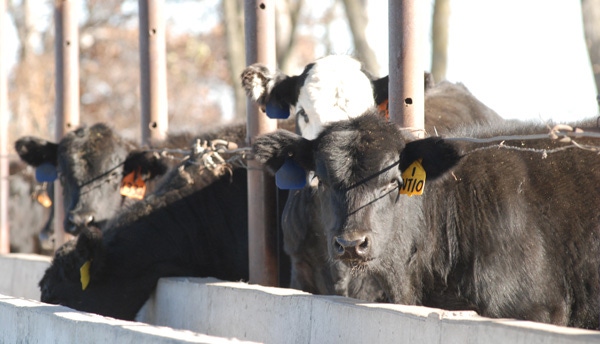University of Nebraska beef research shows feedlot performance is reduced when low-fat wet distillers grains plus solubles (WDGS) are fed.
January 12, 2012

Feedlot performance is reduced when low-fat wet distillers grains plus solubles (WDGS) are fed, say University of Nebraska beef researchers.
WDGS is produced by combining the distillers grains and distillers solubles fractions of ethanol production. These components can vary from plant to plant, changing the fat content of the final product. The fat content of WDGS can also be reduced as ethanol plants evaluate methods to recover oil as a separate byproduct from the overall process.
Crossbred yearling steers weighing 879 lbs. were used to study the effects of feeding normal-fat WDGS (12.9% fat) compared to a low-fat WDGS (6.7% fat). Both sources of WDGS were included in the finishing ration at 35% of the diet’s dry matter. A control ration contained no WDGS.
The concentrate portion of the test rations was a 1:1 mixture of dry-rolled (DRC) and high-moisture corn (HMC) with sorghum silage and supplement providing the remainder of the diet. Total ration fat content was 3.6% for the non-WDGS diet, 4.7% for low-fat WDGS and 6.9% for the normal-fat WDGS diet.
Steers fed the normal-fat WDGS gained faster (3.71 vs. 3.41 lbs./day) and had heavier final (1331 vs. 1294 lbs.) and carcass (839 vs. 815 lbs.) weights compared to the steers fed the low-fat WDGS.
Steers fed the low-fat WDGS diet and the DRC-HMC control diet had identical dry matter intake, average daily gain and feed conversion. This suggests that the synergistic advantage of feeding WDGS with DRC or HMC is derived from or associated with the relatively high fat content of normal-fat WDGS being protected from the interaction with rumen microbes.
Cattle feeders purchasing WDGS should periodically monitor product purchased for fat content and seek normal- or higher-fat product.
Scott B. Laudert, Ph.D., is a beef cattle technical consultant and former Kansas State University Extension livestock specialist based in Woodland Park, CO. He can be reached at 719-660-4473.
Resources
You May Also Like



